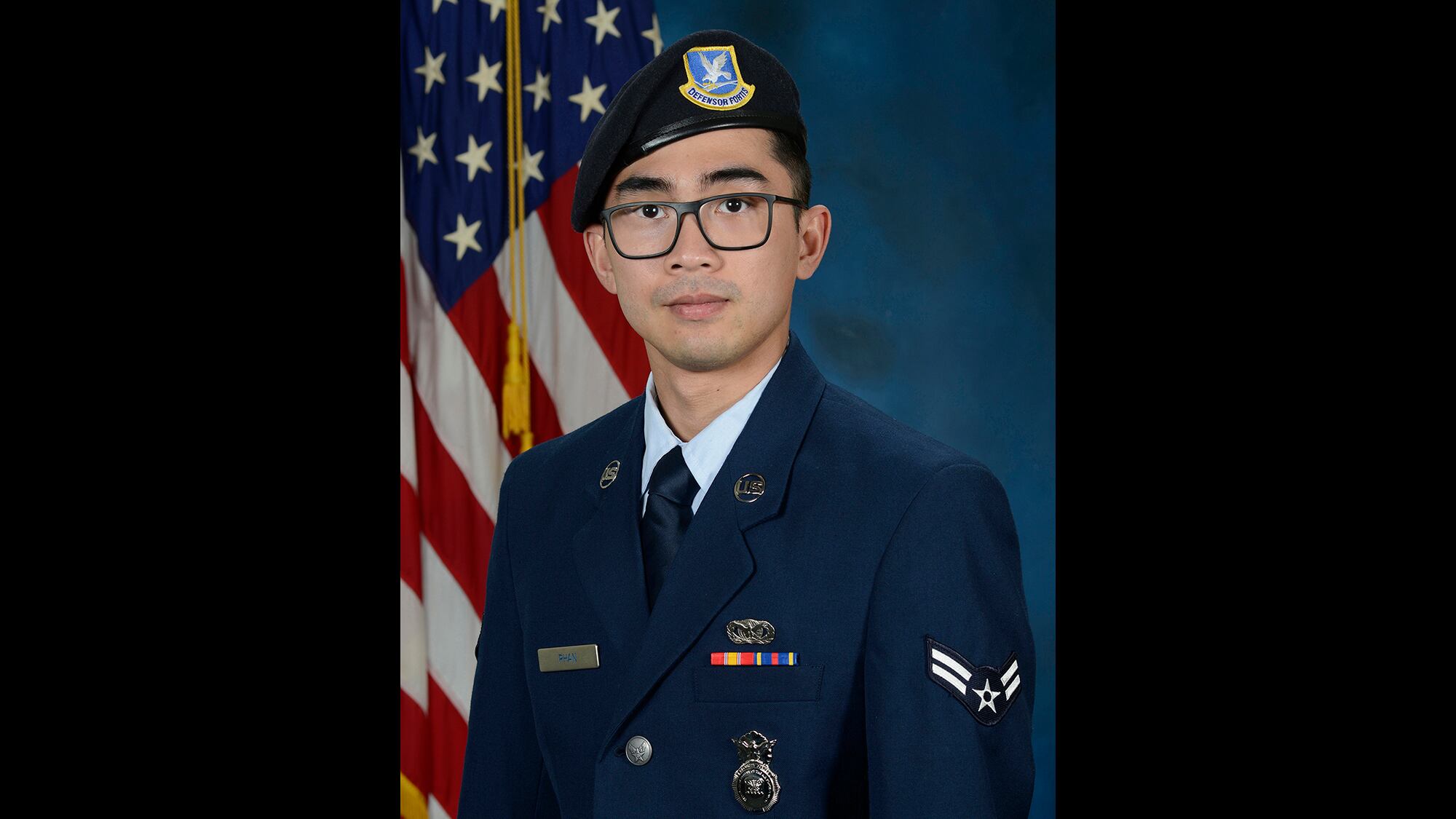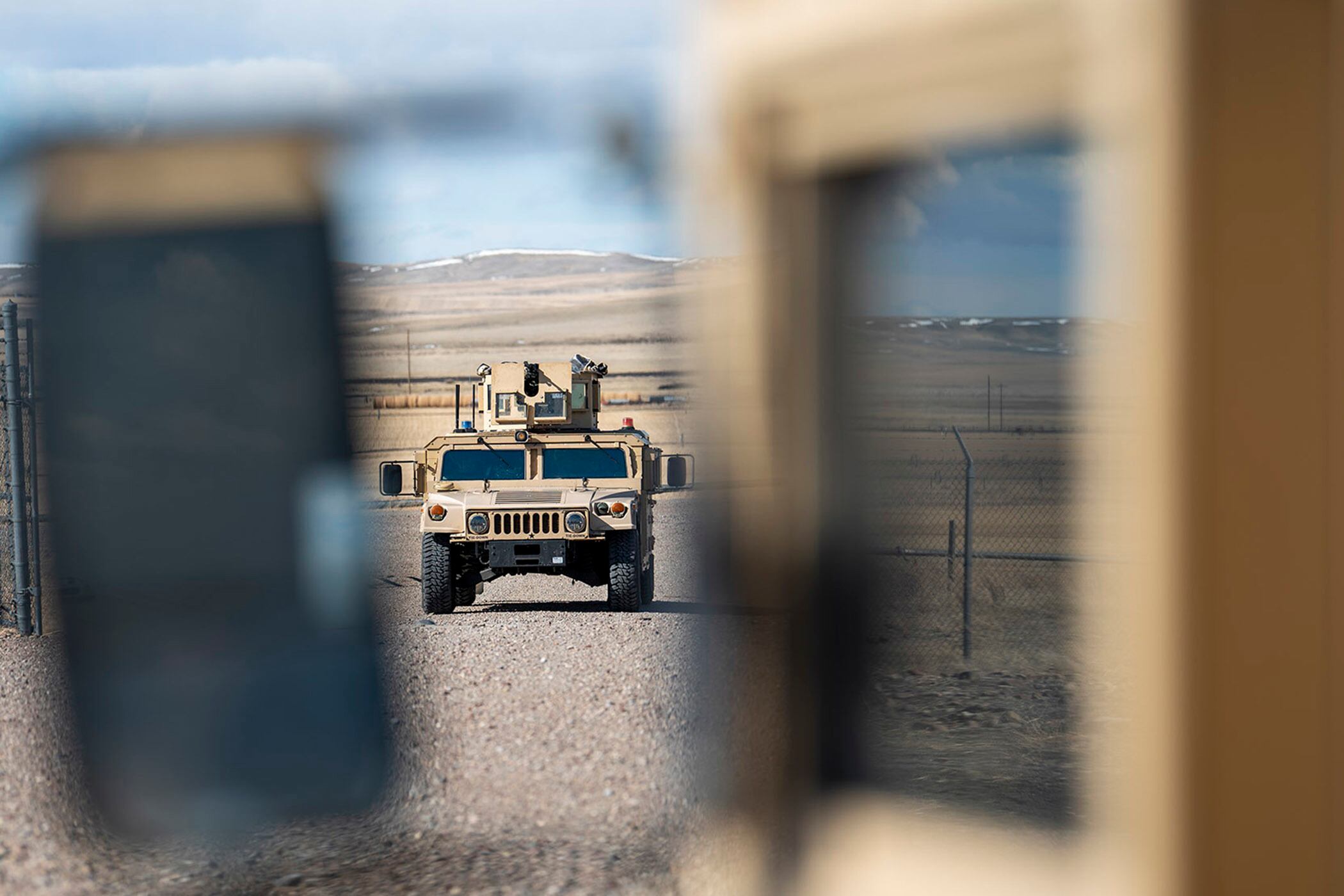Two airmen were permanently disabled in an all-terrain vehicle rollover after failing to wear their seatbelts while speeding down a remote island road in February 2023, an Air Force investigation found.
The driver, a male captain, and one passenger, a female staff sergeant, were traveling along the beach in a search-and-rescue tactical vehicle when it rolled over near North Field on the tiny island of Tinian in the western Pacific on Feb. 17, 2023.
RELATED

Both airmen were attending Cope North, an annual multinational exercise that tests collaboration between the U.S., Australian and Japanese air forces in the Pacific, according to the report.
The captain, a tactical air control party officer, had arrived on Tinian to manage air-to-ground communications for the exercise while the staff sergeant took photos and videos of the event.
The Air Force did not disclose the names of the airmen, who were assigned to the 25th Air Support Operations Squadron at Wheeler Army Airfield, Hawaii, and the 1st Combat Camera Squadron at Joint Base Charleston, South Carolina.
As the airmen climbed into the vehicle around 3 p.m., the staff sergeant asked the captain for assistance with her seat belt. She had never ridden in a tactical vehicle as a passenger before and wasn’t sure how to properly buckle up, according to the investigation.
The captain insisted that seat belts were unnecessary for a five-minute drive, the report said. He also failed to inform her that passengers riding in all-terrain vehicles are required to don certain protective gear, like helmets and eye guards.
The staff sergeant told investigators that once the captain made his way onto the road, he began speeding. She asked him several times to slow down, but he ignored them, the report said.
Most roads on Tinian — originally a B-29 bomber launching site for American forces during World War II that the U.S. now sees as a key staging ground for countering China in the Pacific — are unpaved and overgrown. The car began swerving between the road and the plants that surrounded it, with gravel from the ground spraying everywhere, according to the staff sergeant.
To no avail, the woman again asked the driver to slow down as the vegetation hit her in the face. The ATV then swerved off the road completely, ejecting the two airmen as it rolled.
RELATED

The driver sustained injuries that paralyzed him from the waist down; the passenger fractured her pelvis as she flew out of the vehicle and then collided with it. Her injury required several surgeries, including to amputate her leg above the knee.
A civilian who witnessed the mishap alerted security forces, who soon arrived to administer first aid. The staff sergeant’s injuries were judged to be dire and she was quickly sent to Guam on a U.S. Air Force C-130 transport aircraft to receive immediate medical attention.
The captain was eventually transported to Guam as well aboard a Japanese UH-60J helicopter to receive treatment for his wounds.
In an interview with investigators, the captain said a problem with the steering wheel had caused the car to veer on and off the road. He also said he didn’t remember the staff sergeant telling him to slow down.
The investigation determined that the vehicle was traveling between 40 and 50 mph. Though there was no posted speed limit, law enforcement officers said that 15 miles per hour was an appropriate speed limit given the road’s limitations.
The Air Force uses the SRTV-SXV tactical vehicle to transport “Guardian Angel” special operations forces who perform search-and-rescue and personnel recovery missions.
The report noted that the Air Force was aware that the vehicle “had a propensity to roll over” and that its steering technology could make it “twitchier” at high speeds. While BC Customs, the vehicle’s manufacturer, recommended adding wheel spacers to make the vehicle wider and potentially safer, the Air Force instead issued a notice asking airmen to obey their training and safety guidelines to prevent rollovers.
BC Customs “was unaware of this recommendation and completed the 2-inch spacer modification” to the ATV involved about three weeks before the accident, the report said.
The Air Force logged 18 major on-duty mishaps in a personal or government-owned vehicle in fiscal year 2023, according to the Air Force Safety Center.
Riley Ceder is a reporter at Military Times, where he covers breaking news, criminal justice, investigations, and cyber. He previously worked as an investigative practicum student at The Washington Post, where he contributed to the Abused by the Badge investigation.





